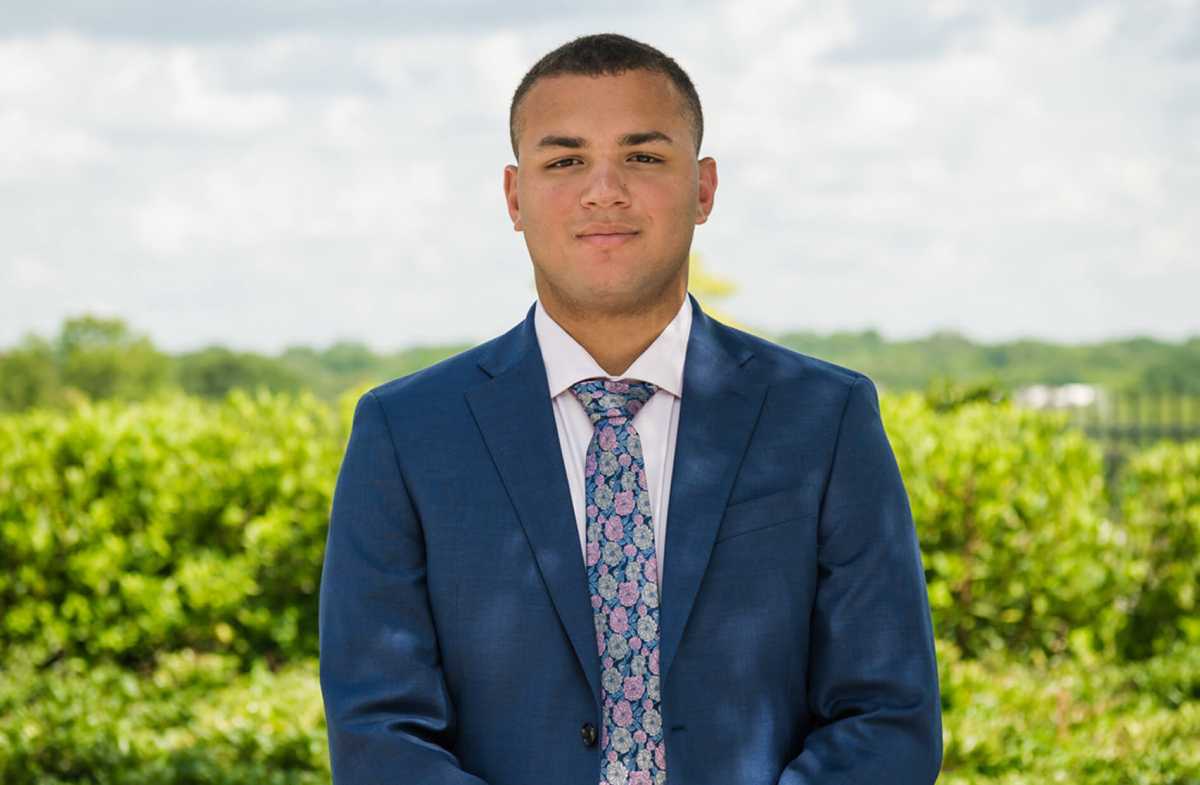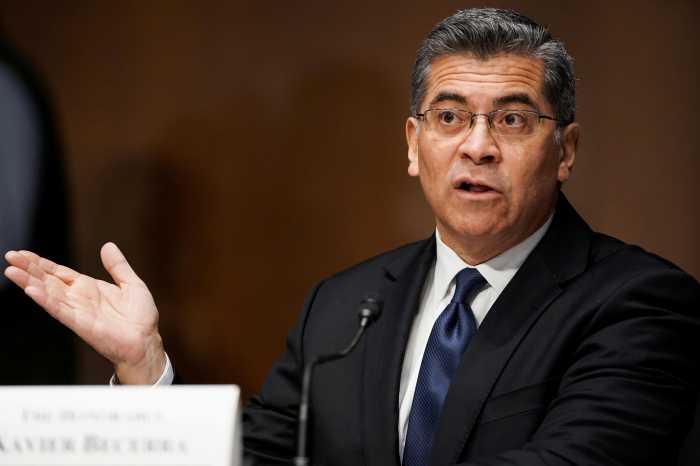Lambda Legal is suing the United States Department of Defense for discriminating against HIV-positive people who want to enlist in the military.
The case, Wilkins v Austin, comes seven months after the same legal team led by Lambda Legal won a major court victory for active HIV-positive service members earlier this year. In that case, the court ordered the military to stop discriminating against HIV-positive members of the military who were trying to advance their military careers.
The April 6 federal court permanent injunction on two separate cases, Harrison v. Austin and Roe & Voe v. Austin, only affected enlisted HIV-positive service members. It did not affect HIV-positive individuals who want to enlist in the military.
In a new case, three HIV-positive plaintiffs claim they were discriminated against by the military after they tested positive for HIV during the recruitment process, according to the November 10 Lambda Legal news release.
Isaiah Wilkins, Carol Coe, and Natalie Noe filed a complaint November 10 in the US District Court for the Eastern District of Virginia against Secretary of Defense Lloyd Austin III and Secretary of the Army Christine Wormuth. The complaint claims Austin and Wormuth violated their equal protection rights under the Fifth Amendment’s Due Process Clause. Additionally, the plaintiffs claim Austin violated the Administrative Procedure Act because the military has a policy barring enlistment of HIV-positive people and failed to update Department of Defense policies regarding HIV medical science and enlistment and enlisted HIV-positive individuals. Similarly, the complaint claims Wormuth violated the same administrative policy for the Army Reserves for the same reasons.
Lambda Legal, along with co-counsel Winston & Strawn LLP, Perkowski Legal, PC, and Scott A. Schoettes, Esq., are representing Wilkins, a 23-year-old gay man; Coe, a transgender woman who is using a pseudonym to protect her privacy; and Noe, a straight woman.
Minority Veterans of America is also a plaintiff in the case. Two of the plaintiffs are members of the Minority Veterans of America, Lambda Legal senior attorney Kara Ingelhart told Gay City News. Minority Veterans of America advances the interests of its civilian members who are living with HIV and wish to serve in the military.
In April, US District Judge Leonie M. Brinkema’s permanent injunction prevented the military from “categorically barring the worldwide deployment of asymptomatic HIV-positive service members with undetectable viral loads based on their HIV status.” Brinkema’s opinion was heavily influenced by a Fourth Circuit Court of Appeals ruling that the military’s policy regarding HIV-positive individuals serving in the military was outdated.
Brinkema ordered the Air Force to rescind its prior decision to discharge Roe and Voe and ordered the Army to rescind its decision denying Harrison’s application to commission into the Judge Advocate General Corps.
“It is unconscionable to deny people who are asymptomatic or have undetectable viral loads unable to enlist in the army,” Brinkema said in the decision.
President Joe Biden agreed with the federal court’s ruling. In July, his administration announced it would no longer defend discriminatory restrictions that prevented servicemembers living with HIV from deploying and commissioning as officers.
Ingelhart, a 32-year-old bisexual woman, said the difference between civilian companies and the military is that “in other forms of employment, employers in the US have to comply with the Americans with Disability Act. They can’t make discriminatory policies based on HIV status.” However, “the Americans Disability Act doesn’t apply to the military,” Ingelhart said.
Ingelhart called the new case “incredibly important” as the “last barrier” in the Department of Defense’s policies regarding HIV-positive people enlisting in any branch of the military. Currently, they can’t enlist.
“My clients, who are civilians living with HIV, are just as healthy as service members who aren’t living with HIV,” she said. “[They] should be similarly able to seek out those opportunities to do any job in the world.”
The plaintiffs
Wilkins, a Black man whose mother is a military veteran, wanted to serve his entire life.
Ingelhart said Wilkins “was doing such stellar work being so highly recognized for his contributions in the Georgia National Guard, that his commanding officers put him up for a position at the military Prep Academy at West Point to ultimately become a West Point cadet.”
That decision led to the unraveling of his career. In order to accept the new position, he had to be separate from the National Guard and reenlist to join the military Prep Academy at West Point. He tested HIV-positive during the medical exam.“He had acquired HIV while he was in the National Guard, but then tested positive when he was switching to be at the service academy,” said Ingelhart. “He was ultimately discharged.”
“I served honorably and ably as a member of the Georgia National Guard. It’s frustrating that although I am healthy and fit for service, an outdated policy keeps me from continuing my family’s legacy of proud service to our country,” Wilkins, the lead plaintiff, said in the release.
Wilkins is currently a police officer in Georgia, Ingelhart said. “He just really wants to get right back on the path to a full career in the service.”
Coe, a Latina transgender lesbian, actively served in the army as an HIV-positive soldier after contracting the virus during her service. Coe enlisted when she was 18 years old in 2008. She was honorably discharged in 2013 when she left the military to undergo gender reassignment surgery. After transitioning, Coe, who loved serving in the military, wants to return to service but is barred due to her HIV status.
Ingelhart said that the military allowed enlisted HIV-positive soldiers to stay as long as they maintained a low virus load or became undetectable, but “your career could no longer advance.”
Noe, who is of Indigenous Australian descent, married a US citizen and immigrated to the US. She wants to join the Army Reserve. She applied and mapped out a career path with an Army recruiter. She was given a “report date” of July 13, 2020, but was informed she could not move forward due to testing positive for HIV.
Outdated
Ingelhart argues in the 23-page complaint that the military’s HIV policy is “out of step with science,” and that Americans’ deeply rooted “misconceptions, fear, and ignorance” of HIV results in “stigma, ostracism, and discrimination” against HIV-positive people despite medical breakthroughs in the treatment and prevention of HIV.
According to HIV Law and Policy, “minimal policy changes” were made by the military in recent updates in 2012 and 2014. In July, the Department of Defense updated its policy regarding active HIV-positive members of the military to comply with the ruling earlier this year, but it did not apply to people wanting to enlist in the military.
Ingelhart additionally claims the policy is also a “serious equity issue” based on the disproportionate impact of HIV on LGBTQ people and people of color.
It is estimated that 1.6% of people serving in the military identify as LGTBQ, according to a 2015 Department of Defense health-related behaviors survey conducted by Rand. The National LGBTQ Task Force found in a report this year that 20% of transgender people have served in the military, which is double the percentage of the US general population that has served. The New York Times reported that some 43% of the 1.3 million men and women on active duty in the US military are people of color.
Ingelhart sees the military’s policy regarding HIV-positive people serving as unlawful and seriously impacting “communities who already face countless systemic barriers to accessing full life in America.”
Striking this policy would help expand opportunities for over 1.2 million people in the US living with HIV — 42% of which are Black and 21.7% are Latinx,” she noted in the release.
Perkowski, who is also the legal and policy director of the plaintiff Minority Veterans of America, noted the military’s years-long challenge to meet recruitment and meet retention goals for the all-volunteer force.
“Given this reality, it is non-sensical for the nation’s largest employer to turn away healthy, fit, and fully capable recruits just because they have HIV,” the co-counsel said in the release. “This policy undermines efforts to build and maintain a strong, vibrant military, and there’s no scientific support for it. We will keep fighting until it ends.”
The Department of Defense did not respond to a request for comment by press time.
The Department of Defense has 60 days from November 10 to respond to the complaint under the Federal Rules of Civil Procedure.



































